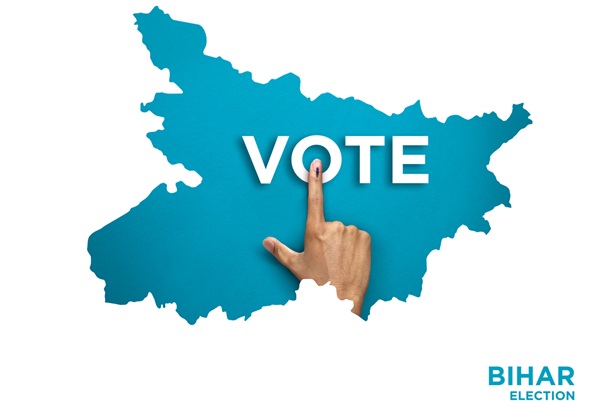.png)
Amitabh Tiwari, formerly a corporate and investment banker, now follows his passion for politics and elections, startups and education. He is Founding Partner at VoteVibe.
August 29, 2025 at 9:21 AM IST
The Special Intensive Revision of electoral rolls in Bihar has triggered a political and legal storm, with the issue being contested both politically and in the courts. The opposition, led by Rahul Gandhi, has launched a “Voter Adhikar Yatra” in the state, while the Supreme Court is scheduled to hear the matter on September 8.
The opposition alleges that the Election Commission of India, in collusion with the Bharatiya Janata Party, is manipulating voter lists to influence the upcoming elections. The poll panel has strongly refuted these charges.
According to the draft electoral roll published on August 1, the Election Commission deleted 6.5 million names, citing death or permanent migration to other states. This accounts for about 8% of Bihar’s 78.9 million registered voters. Citizens have time till August 31 to file objections. Meanwhile, the Supreme Court has directed the poll panel to accept Aadhaar as valid proof of identity.
To capture public sentiment, VoteVibe conducted a survey using the computer-assisted telephonic interview methodology. The survey has a sample size of 1,226 respondents, comprising 52% males and 48% females, with 70% from rural areas and 30% from urban areas. Results were weighted to reflect population proportions.
The findings reveal a sharp divide in trust, experience, and expectations regarding the revision process.
Voter List Management Problems
Over a third of respondents (37.2%) reported facing problems while adding or removing names from the voter list, 42.2% said they did not, and 20.6% were unsure. Among voters aged 18-24, nearly half (44.9%) experienced problems, much higher rate than in older groups. No major gender-wise differences were reported.
Did you or any member of your family face any problem in adding or removing a name from the voter list?
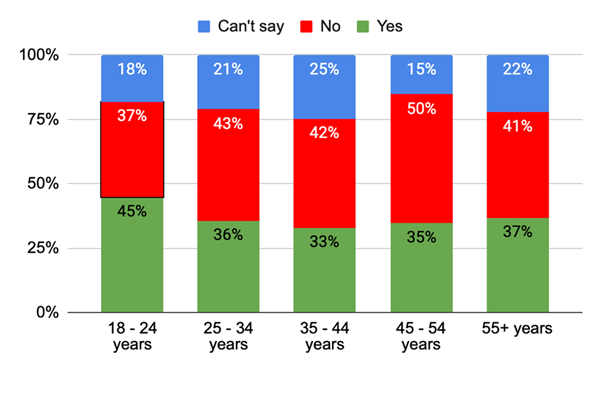
Mixed Views on Transparency
Public opinion is almost evenly split, with 39.9% of respondents believing the process was conducted properly, while 39.8% expressed doubts about its fairness.
Analysis shows a clear correlation between age and trust in the electoral roll revision process. Younger voters demonstrated considerably less confidence in the system, with only 32.2% of 18-24 year-olds believing the revision was conducted properly. In stark contrast, 56.6% of voters aged 55 and above expressed confidence in the process.
Gender differences were also visible, with men showing higher trust levels (43.0%) in the process than women (36.2%). The gap may be due to the fact that more women than men have been deleted from electoral rolls, as per an article in The Hindu.
Do you believe that the work of Special Intensive Revision of the voter list has been done in a proper and transparent manner?
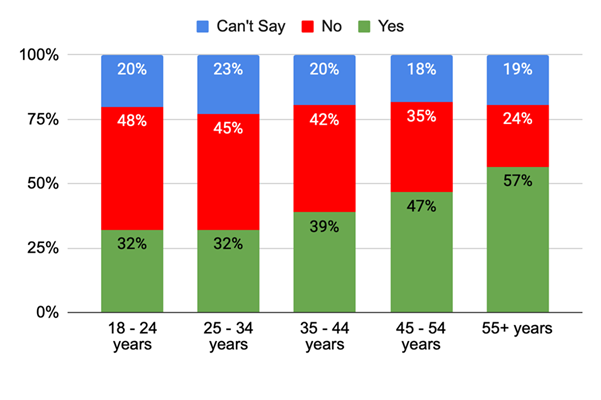
Objection Period Deemed Insufficient
The one-month window for filing objections has drawn criticism. Over 40% of respondents (40.9%) considered the timeframe inadequate, while 38.3% deemed it sufficient.
Generational differences also persist, with nearly half of 18-24 year-olds (47.2%) finding the period too short, compared with only 29.9% of voters aged 55 and above.
Do you think the time given for raising objections to the voter list of 1 month is sufficient?
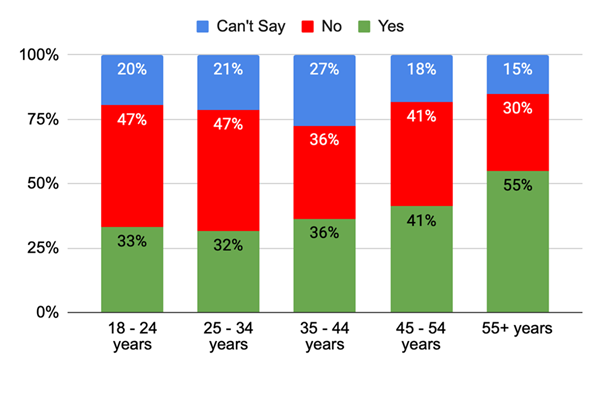
Strong Support for Nationwide Implementation
Despite concerns about the current process, there is significant support for expanding the Special Intensive Revision nationwide. Nearly half of all respondents (49.2%) favoured immediate national rollout, while 39.1% preferred improving the system first.
Support for nationwide rollout of Special Intensive Revision increases with age, peaking among middle-aged and older voters. Both the 45-54 age group (57.1%) and those 55 and above (57.3%) back nationwide expansion. Interestingly, women were slightly more supportive than men (50.7% vs 47.9%).
This suggests that, despite dissatisfaction with execution, voters broadly want errors in electoral rolls corrected.
Given the errors in electoral rolls, what is your take on nationwide SIR?
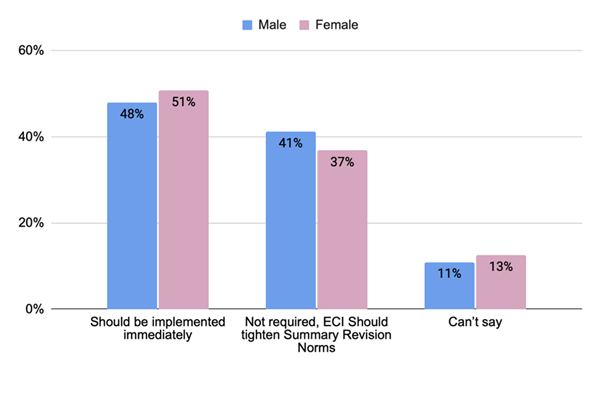
Document Accessibility Varies by Demographics
A majority of Bihar residents (74.7%) reported having the required documents for submission to the Election Commission, though significant variations existed across age groups. The Election Commission has listed 11 identity documents, and the Supreme Court has asked it to include Aadhaar as well.
It should also be noted that 43 million voters (more than 50%) do not need to submit this proof, except for a screenshot of names in the 2003 electoral list, provided their names appeared in the 2003 electoral rolls. The opposition claims that many citizens across India still lack any of these 11 documents and risk exclusion. In contrast, the Election Commission has recently said that 98.4% of voters nationwide have already submitted valid proofs.
Document possession shows a clear upward trend with age, rising from 61.1% among 18-24 year-olds to 81.5% among 35-44 year-olds. This likely reflects the cumulative process of acquiring official documents over time.
Do you have any of the 11 documents required to be submitted by ECI?
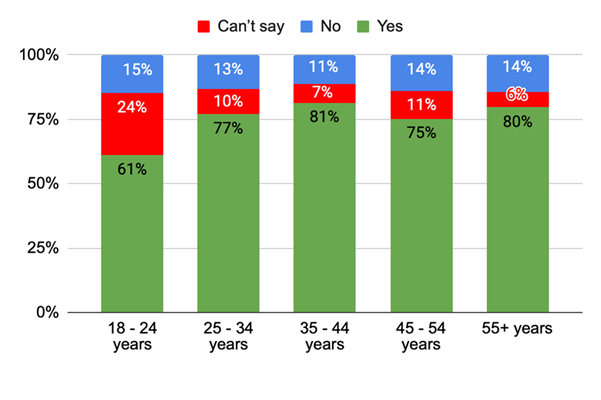
The Bihar survey underscores the complexities of electoral roll management, marked by generational divides in trust, experience, and expectations. While there is broad support for improving electoral processes through initiatives like the nationwide implementation of Special Intensive Revision, significant challenges remain in addressing the concerns of younger voters and building universal confidence in the electoral system.
